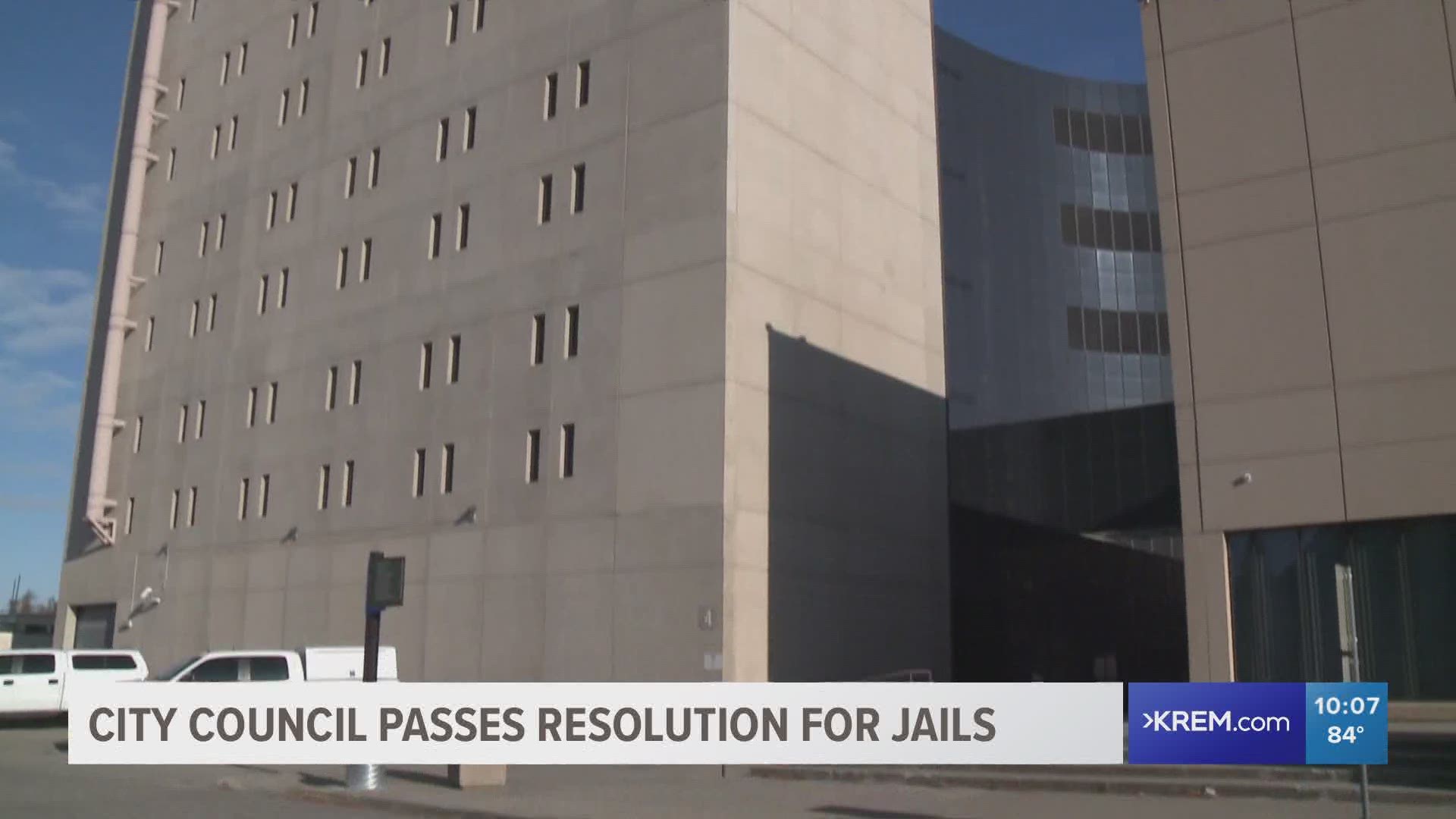SPOKANE, Wash — The Spokane City Council passed a resolution on Monday outlining objectives for reforming the city's criminal justice system.
The measure is arguably the most specific policy action taken by local government to address issues of institutional racism since protesters began marching through Spokane in May.
The overarching goal of the seven bullet points is making the system more effective and equitable, and less expensive and reliant on the jail.
"Really we're trying to catch up our systems to our understanding of human behavior psychology and history," said City Council President Breean Beggs.
A task force of about 30 people came to the conclusion that sending everyone to jail does more harm than good, it's costly and increases the likelihood of people re-offending.
"But there are interventions that work, we know that, and that keep us safer and that hold people accountable," Beggs said.
The resolution encourages expanded use of those kinds of alternatives, including electronic monitoring, supervised release, temporary release, and restrictions on travel or housing. It also calls for more diversion towards resources like drug treatment or job training, and an increase in attention to mental health.
"We do not need to be locking up our citizens who have mental health issues," said Council Member Betsy Wilkerson. "That's not the place for them. They do not get the help they [need] or the support. And really our guards in our jail systems are not trained to handle those kinds of people, that they have to care for."
Council also took aim at the cash bail system. Critics say it's unfair to have someone's freedom tied to how much money they have before they've even been convicted.
"Some citizens just never get out from underneath that," Wilkerson said. "They never really get to a point where they're free from the criminal justice system."
"The challenge of it is a person who’s wealthy enough can simply bond out, regardless of whether they’re dangerous or not," Beggs said. "If they have the money, they’re out whether they’re dangerous or not. And the person who’s too poor to have cash bail, they don’t get to go out regardless of how dangerous they are."
The measure essentially calls for a reduction in pretrial incarceration.
It passed 6-1, with Council Member Michael Cathcart the lone nay vote. He balked largely at the pretrial incarceration language, wanting to include more specifics about when it would in fact be a good idea to keep defendants in jail.
The resolution is non-binding, meaning it's basically a set of guidelines. And though it may be followed up with binding ordinances, that process may take a while.
"I don't know how confident I am," said Wilkerson of the likelihood binding action will be taken. "A lot of that depends on who's around the table when those decisions are being made going forward. But for now, we are making a statement, and I'm hoping that while we're all here that we can maybe get something accomplished."
Nonetheless, a resolution is still a law. It must be considered by everyone from city police to lawyers when making decisions.
"The city... all the employees, have to look to this as the policy of the city," said Beggs.

